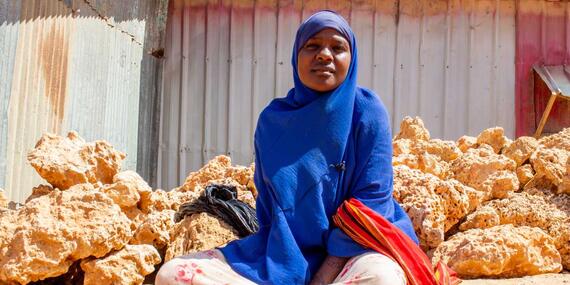Today's top news: Somalia, Türkiye

Somalia
The Resident and Humanitarian Coordinator in Somalia, Adam Abdelmoula, is urging donors to keep up their support for people facing one of the world’s worst humanitarian crises.
Mr. Abdelmoula told Member States today that needs in the country remain high and urgent. Though famine is no longer projected, areas hit hardest by a historic drought are still at risk.
This year’s US$2.6 billion Humanitarian Response Plan to help 7.6 million people in Somalia is just 13 per cent funded. Generous donor support has helped avert a famine for now, but Mr. Abdelmoula said those fragile gains could be lost without consistent funding.
The current rainy season in Somalia is expected to underperform and is unlikely to improve the outlook for many people in the country.
In recent weeks, rains have caused deadly river flooding, mostly in Jubaland State. In response, the UN and our partners are helping provide food, shelter, health and other urgent services.
Meanwhile, there’s been renewed fighting in Laas Caanood in the Sool Region. Since December, as many as 203,000 people have been displaced. We and our partners are working with authorities to provide assistance to those affected. This includes providing hygiene supplies for more than 12,000 people and water for some 27,000 people. About 30 health facilities are providing health and nutrition services to displaced communities, with mobile health teams reaching several villages.
Türkiye
We continue to support the Government-led efforts to help millions of affected people.
The UN and our partners have reached some 2 million people with water, sanitation and hygiene services. This includes more than 1 million litres of drinking water and 1.7 million litres of water for sanitation. We have also provided nearly 318,000 hygiene kits, more than 28,000 dignity kits, and thousands of latrines and bathing facilities.
We and our partners have also reached 135,000 people with health services and supplied 16 mobile clinics. Since the earthquakes, 42 emergency medical teams deployed to the region have carried out more than 71,000 consultations. Nine teams remain on the ground. We’ve also provided 4.7 million vaccine doses, including for polio, Hepatitis B, and tetanus and diphtheria.
Needs for shelter, water, health, sanitation, and hygiene services are still very high after February’s earthquakes. That’s why we urgently need more funding for the humanitarian response aimed at helping more than 5 million people. Our $1 billion flash appeal is just 28 per cent funded.
